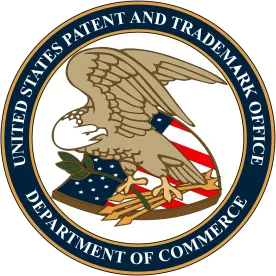Examiner interviews are often indispensable to advance prosecution of a U.S. patent application, and interviews can help advance prosecution in the vast majority of applications. The Midwest Regional U.S. Patent and Trademark Office (USPTO) held a webinar on March 24, 2021 entitled “Conducting an Effective Patent Examiner Interview,” featuring Vivek Koppikar, Special Advisor to the Regional Director of the Midwest Regional Office. Mr. Koppikar discussed many topics, including USPTO policies and guidelines, examiner training, interview trends, the automated interview request form, and more. Below is useful information Mr. Koppikar provided during the program.
-
Examiner interviews are consistent with USPTO policy guidelines in providing timely prosecution and disposition of a patent application. Interview time in the patent corps has steadily increased since 2008. In 2020, examiners spent approximately 32 hours per year conducting interviews.
-
Examiner training includes mock interviews, a review of policy guidelines, and technology training. Examiner training occurs at least once a year. Mr. Koppikar emphasized that patent practitioners should not hesitate to set up interviews with examiners.
-
The automated interview request form (AIR), whose benefits Mintz previously outlined, is an electronic way for an applicant to request an interview with an examiner. As of December 2020, there have been over 140,000 interview requests using the AIR form. In response to the applicant submitting the AIR form, the examiner receives an email confirmation. The email confirmation includes a proposed time and date for the interview and preferred type of interview (phone, video, or in person). The examiner should respond by email or phone within one business day and should clarify next steps. Internet authorization is required for examiners to communicate via email with an applicant. Internet authorization cannot be submitted via email and should be submitted via EFS, the AIR form, fax, mail, or the USPTO Customer Service Window. Authorization is also required for videoconferencing. The USPTO recently updated its policy to make it easier for patent applicants to authorize the use of videoconferencing tools to conduct examiner interviews by allowing applicants to verbally request and authorize a video conference interview.
-
The USPTO has online resources for patent practitioners. Interview specialists in each technology center are available to attend examiner interviews as needed. Quality assurance specialists (QAS) are also available by request if there are issues with examiner conduct or performance.
During the webinar’s Q & A session, attendees asked about interview practice. One question was whether Mr. Koppikar believed interviews prior to a first office action were helpful. Mr. Koppikar noted that in his opinion, an interview before the first office action is not typically beneficial because the examiner hasn’t had a chance to fully review the application. An interview may not even be possible at this stage of prosecution since 37 CFR 1.133(a)(2) states that “[a]n interview for the discussion of the patentability of a pending application will not occur before the first Office action, unless the application is a continuing or substitute application or the examiner determines that such an interview would advance prosecution of the application.” Mr. Koppikar also noted that under the USPTO’s Full First Action Interview Pilot Program, an applicant was entitled to a first action interview, upon request, prior to the first Office action on the merits. This program was discontinued largely due to non-use. The last day for applicants to file requests to participate in the program was January 15, 2021.
Mr. Koppikar ended the webinar noting that in his 20 years of experience at the USPTO, he believes in the importance and benefits of using examiner interviews to shorten prosecution and clarify issues. He noted examiners spend time preparing and training for the interviews and discussions with patent practitioners are on the whole productive and encouraged. The webinar as a whole emphasized the benefits and importance of effective communication with examiners during prosecution.
Examiner interviews can be integral to efficient and cooperative prosecution of a patent application and are thus an essential tool practitioners should always keep in mind for achieving favorable prosecution of patent applications.





 />i
/>i

